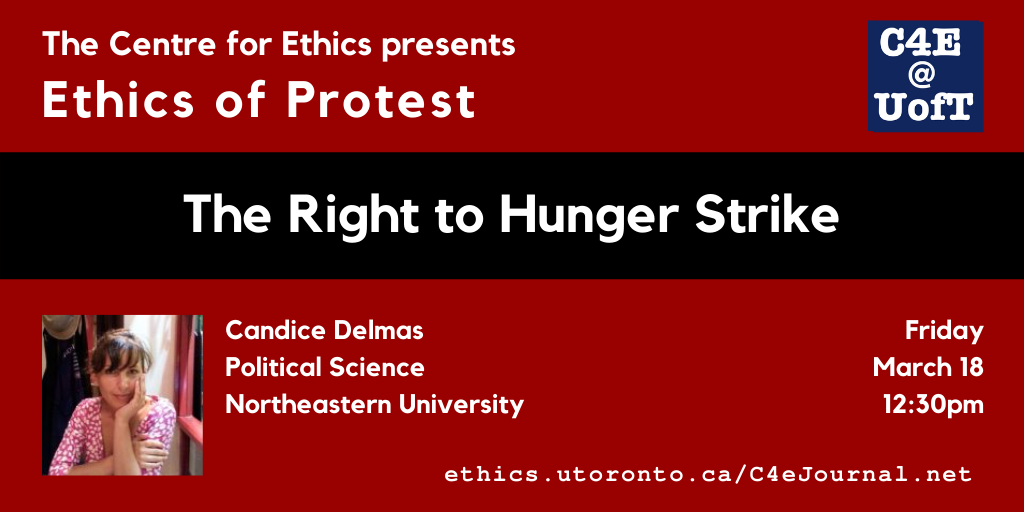 ► To stay informed about other upcoming events at the Centre for Ethics, opportunities, and more, please sign up for our newsletter.
► To stay informed about other upcoming events at the Centre for Ethics, opportunities, and more, please sign up for our newsletter.
The Right to Hunger Strike
Hunger strikes are prohibited and repressed in prison, despite human rights advocates’ insistence that incarcerated persons have a right to hunger strike. Physicians and medical ethicists generally ground the right to hunger strike in the right to refuse medical treatment. Lawyers and legal scholars defend hunger strikers’ free speech rights. Philosophers might view the right to hunger strike as an application of the moral right to civil disobedience. All three models of the right to hunger strike are theoretically defective; they misrepresent the hunger strike and fail to properly account for why incarcerated persons resort to hunger strikes in the first place. I put forth the remedial and constructive models as alternative, complementary models of the right to hunger strike. On the remedial model, the right to hunger strike should be recognized and legally protected as a right to petition for redress, given incarcerated persons’ vulnerability to abuse and prisons’ inadequate grievance mechanisms. The constructive model derives the right to hunger strike from the right to resist oppression and stresses the normative permissibility and transformative potential of the use of coercive tactics to defend one’s freedom and self-determination in context of carceral oppression.
► please register here
Candice Delmas
Philosophy of Religion and Political Science
Northeastern University
Fri, Mar 18, 2022
12:30 PM - 01:45 PM
Centre for Ethics, University of Toronto
200 Larkin

